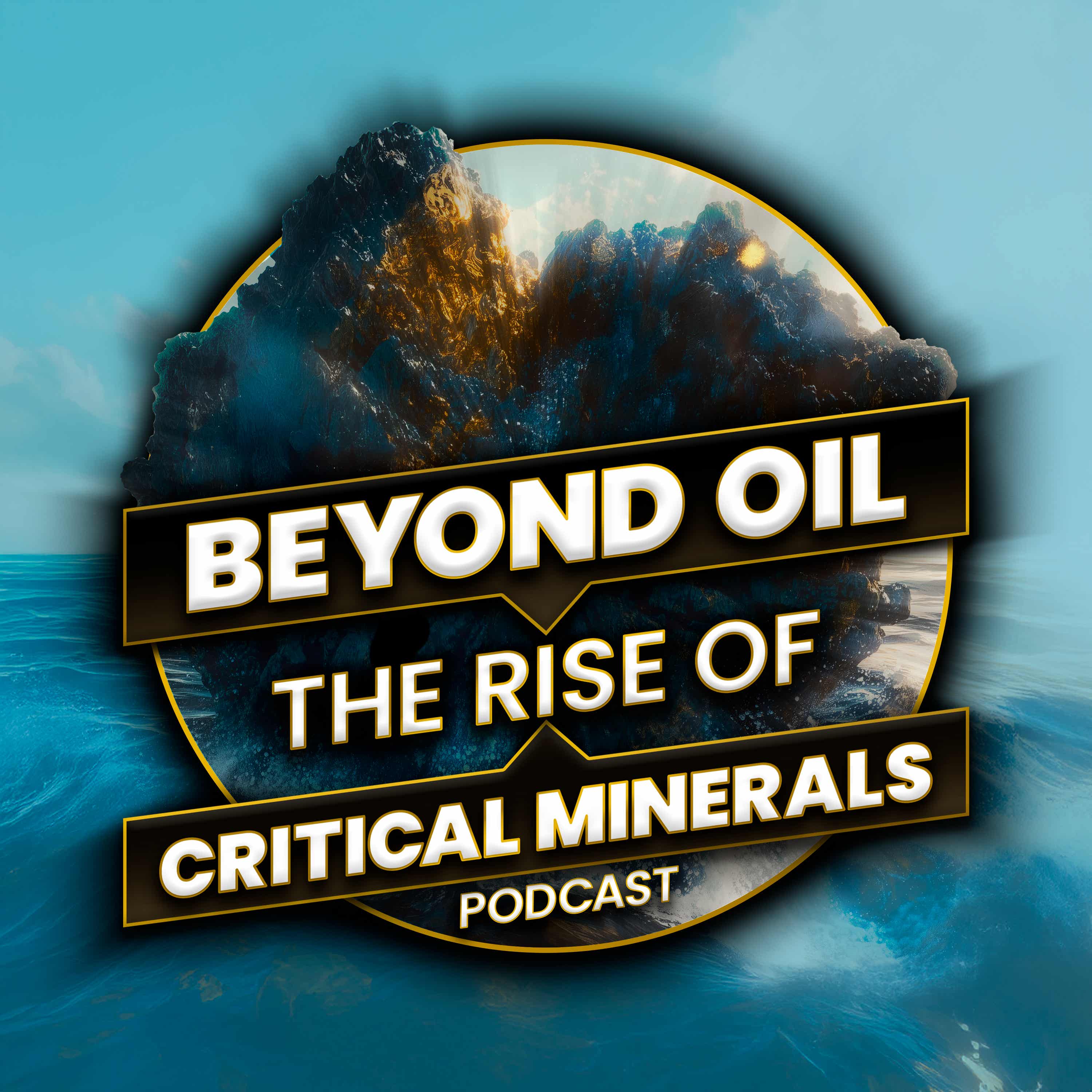Beyond Oil: The Rise of Critical Metals

Beyond Oil: The Rise of Critical Metals
Podcast Description
As oil fueled the 20th century, critical metals will drive the 21st century's electrification and clean energy revolution. The entire clean energy supply chain—from generation (wind, solar, nuclear) to transmission (copper) and storage (batteries)—requires massive amounts of critical metals. impossiblemetals.substack.com
Podcast Insights
Content Themes
Explores the critical importance of minerals in the 21st century, with episode discussions on topics such as seabed robotics, sustainable energy sourcing, and the electrification value chain, including specific episodes like interviews with industry leaders and insights on environmental impact assessments.

As oil fueled the 20th century, critical metals will drive the 21st century’s electrification and clean energy revolution. The entire clean energy supply chain—from generation (wind, solar, nuclear) to transmission (copper) and storage (batteries)—requires massive amounts of critical metals.
🎙️ Episode Description
In this episode, Jason Gillham, CTO/COO and Co-Founder of Impossible Metals, walks through Version 7 of the company’s Techno Economic Model (TEM), explaining how it simulates autonomous polymetallic nodule collection from seafloor to shore. Jason describes how engineering design choices, site conditions, and market inputs flow through the model to determine cost per wet ton, highlights key updates from Version 6 to Version 7—including selective collection (“top grading”) and updated nodule size distributions—and previews what’s coming in Version 8, such as improved sensitivity analysis and cross-site performance modeling.
⏱️ Episode Timeline
* Introduction by Holly and handoff to Jason (00:00:00–00:00:21)
* Jason sets the agenda: TEM Version 7 updates and preview of Version 8 (00:00:21–00:01:00)
* Concept of operations overview: the Eureka Collection System animation and full cycle (00:01:00–00:03:02)
* What the Techno Economic Model simulates: design and operational decisions translated into cost and throughput to shore (00:03:02–00:03:43)
* Example trade-off: dynamic buoyancy engine optimization and interdependent cost impacts (00:03:43–00:05:06)
* “All models are wrong, but some are useful” — using simulations to guide decisions and confidence (00:05:06–00:05:43)
* How the spreadsheet is organized: tabs, information flow, and decision outputs (00:05:43–00:06:20)
* Parameters explained: site, technology, and market inputs (00:06:20–00:08:13)
* Core model blocks: AUV economic model, maintenance model, fleet economics, and financial summary (00:08:13–00:10:20)
* Optimization routine: buoyancy engine sizing and horizontal speed to minimize cost per ton to shore (00:10:20–00:11:44)
* Key Version 7 change: selective collection and “top grading” sensitivity (00:11:44–00:12:25)
* Version 7 updates: alignment with NORAD pre-feasibility inputs, WACC assumptions, and vehicle design refinements (00:12:25–00:16:44)
* Top grading explained and the data behind nodule size distributions (00:16:44–00:21:59)
* Results: cost impacts of selective collection for Eureka III and Eureka IV, including target operating points (00:21:59–00:25:39)
* Looking ahead: Version 8 cross-site performance, improved sensitivity analysis, and labor refinement (00:25:39–00:27:45)
* Final takeaways and closing remarks (00:27:45–00:29:11)
* Q&A highlights: bulk chemistry considerations for nodule size and grade (00:29:34–00:31:09); processing costs handled in project P&L modeling (00:30:36–00:32:11); collector capacity and modeled cycle times for Eureka III and Eureka IV (00:32:45–00:34:27)
🔑 Key Takeaways
* The techno-economic model is a physics- and cost-based simulation of Impossible Metals’ full concept of operations.
* Version 7 focuses on cost per wet ton to shore, incorporating both CAPEX and OPEX using an 8% weighted average cost of capital.
* Selective collection enables strong economics even when collecting a small fraction of nodules, supporting a precautionary operational approach.
* Updated nodule size distribution data shows that a small percentage of nodules can represent a large share of total mass.
* Top-grading strategies can significantly reduce costs, but are not required to achieve viable economics.
* Version 8 will introduce cross-site modeling, deeper sensitivity analysis, probability-based outcomes, and refined labor assumptions, improving confidence in economic results.
This is a public episode. If you would like to discuss this with other subscribers or get access to bonus episodes, visit impossiblemetals.substack.com

Disclaimer
This podcast’s information is provided for general reference and was obtained from publicly accessible sources. The Podcast Collaborative neither produces nor verifies the content, accuracy, or suitability of this podcast. Views and opinions belong solely to the podcast creators and guests.
For a complete disclaimer, please see our Full Disclaimer on the archive page. The Podcast Collaborative bears no responsibility for the podcast’s themes, language, or overall content. Listener discretion is advised. Read our Terms of Use and Privacy Policy for more details.